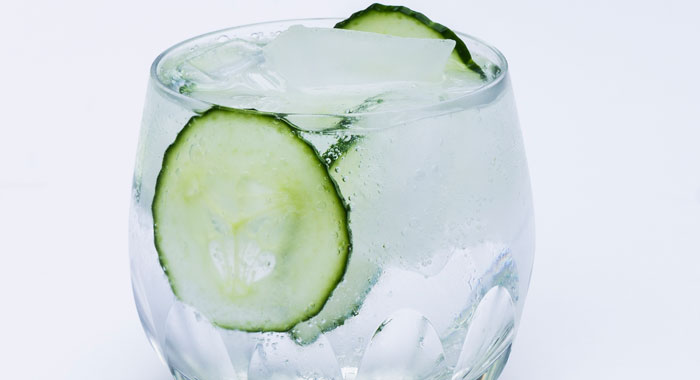
Pronounce it: jinn
Gin
has enjoyed a huge revival recently. It’s usually served alongside
tonic water (a carbonated water with quinine) with ice, and garnished
with something to enhance the drinking experience. The juniper-led
spirit also works wonderfully in cocktails. Notable drinks include the martini, negroni, bramble and white lady.
To
be a gin under EU law, the spirit must be predominantly juniper-led
(something that is being challenged with new flavoured gins), made from a
neutral spirit (global gins don’t live by these rules) and have an ABV
of 37.5%. There isn’t a board of control that regulates gin like there
is for cognac or tequila, therefore boundaries are a little blurrier.
But it is widely agreed that the three points noted are what constitutes
a true gin.
Gin is a flavoured spirit. Neutral (flavourless)
spirits are usually distilled with botanicals. The botanicals are cooked
in the spirit where they release oils and these turn into aroma and
flavour. The common way to differentiate gins is to vary the botanicals.
It’s popular to use a unique blend of botanicals so your gin stands out
from the crowd. The most popular botanicals are juniper, citrus (using
the peel) and coriander seeds. Other spices, herbs and fruit are then
used to enhance the flavour.
Navy strength gin is poured at
around 54-57% abv. The strong gin has a history of being rationed on
naval ships. Sloe gin is gin infused with sloe berries, while pink gin
was originally gin mixed with a dash of Angostura bitters, but is now
often flavoured with fruit and flowers to give it a blush-coloured hue
and sweet, aromatic flavour.
Availability
Gin is available in most UK supermarkets, off licences, bars and pubs. The quality of gins available has improved dramatically over the last 10 years with the boom in new distilleries.
Choose the best
To decode the label is often a tough task. A London Dry is a style of gin using a traditional distilling method, it does not have to be distilled in London but if you’re looking for that classic flavour, you’ll find it here. Look for where the gin is distilled, if it tells you the distillery, you’re better off. Or else it could be a contract distilled gin, which may be tasty but is not unique.
Store it
Keep the stopper and it’ll store forever. Leave a pourer in the bottle and you’ll lose some booze to evaporation, known as the ‘angel’s share’.
Cook it
Don’t cook it, drink it. Or use it in curing – gin works great for curing seafood, especially salmon. A splash in your dessert won’t hurt either. G&T drizzle cakes are simply divine. Try making our gin & tonic cake.
Be the first to comment on "Gin"